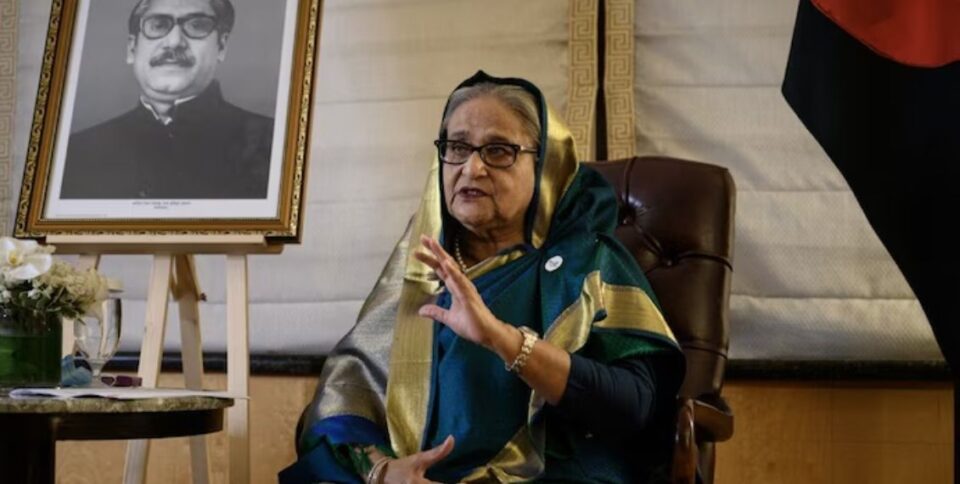NEW DELHI/DHAKA: (Oct 29) Ousted Bangladesh prime minister Sheikh Hasina has rejected calls to apologise for the deaths of over 1,400 people during the July 2024 uprising, calling the allegations against her “politically motivated” and vowing to remain in India during her ongoing trial for crimes against humanity.
In a series of interviews with Reuters, AFP, and The Independent published on Tuesday, the 78-year-old former leader remained defiant, accusing the Muhammad Yunus-led interim government of denying millions of Bangladeshis the right to vote by excluding the Awami League from the upcoming elections.
“I mourn every life lost, but I reject the false allegation that I ordered police to shoot demonstrators,” Hasina told The Independent, insisting that the unrest was fuelled by “political manipulation” aimed at toppling her government.
Prosecutors at the International Crimes Tribunal have sought the death penalty for Hasina, accusing her of authorising lethal force during the anti-government protests in July and August 2024 — violence the UN described as the country’s deadliest since the 1971 Liberation War.
The Daily Star had previously reported on a leaked audio recording in which Hasina allegedly ordered her nephew, former Dhaka South Mayor Fazle Noor Taposh, to “use lethal weapons” against protesters. Hasina told AFP the clip was “taken out of context,” while conceding that “mistakes were made within the chain of command.”
Hasina, who fled to India after protesters stormed her residence in August 2024, maintains that her trial is being conducted by “kangaroo courts” with “guilty verdicts already written.”
“They’ve been brought by courts where the outcome is predetermined,” she told Reuters. “I will neither be surprised nor intimidated if they sentence me to death.”
The tribunal is expected to deliver its verdict on November 13. Hasina has not appeared before the court or appointed a defence team.
She accused the interim government of “disenfranchising millions” by banning her party’s activities, calling it a “dangerous precedent” that undermines democracy. “Elections without the Awami League cannot be credible,” she said, noting that her government had similarly banned the Jamaat-e-Islami before her fall from power.
Hasina said she has “no intention of leaving India”, describing her life in Delhi as quiet and reflective. “I live freely, sometimes walking through Lodhi Gardens,” she told AFP. “But I remain cautious — my family’s history reminds me how fragile power can be.”
Hasina’s father, Sheikh Mujibur Rahman, was assassinated in a 1975 coup, along with most of her family.
Her critics, including prosecutors and human rights lawyers, argue that she bears “command responsibility” for the violence. Chief prosecutor Tajul Islam described her as “the nucleus around whom all the crimes were committed.”
Hasina said her priority now was ensuring “the welfare and stability of Bangladesh,” urging Yunus to reinstate her party to “give people the choice they deserve.”
“For Bangladesh to move forward, there must be a return to constitutional rule,” she said. “No single person or family defines our country’s future.”

